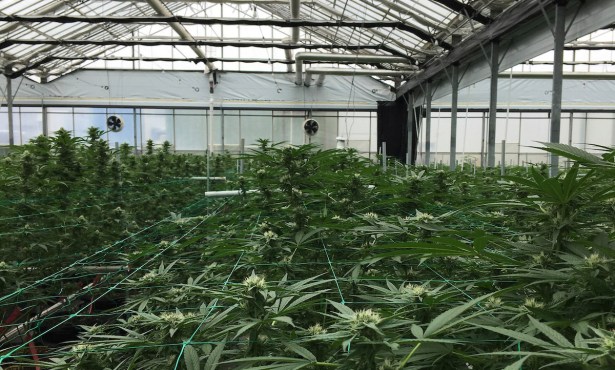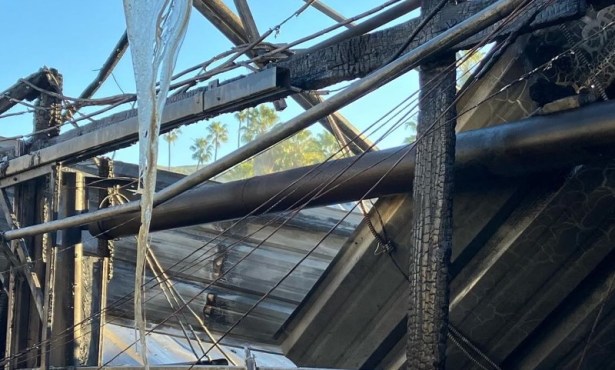City of Santa Barbara Counters L.A. Magazine Allegations
Statement and Fact Sheet Issued by City Administrator, Attorney, and Police Chief

Responding to a tidal wave of emails and rumor awash in Santa Barbara over allegations of corruption made in a Los Angeles magazine article published on March 12, the city’s administrator, attorney, and police chief issued a statement and a fact sheet the Independent reproduces here, in full.
Santa Barbara City Administrator, City Attorney, and Police Chief Issue Joint Statement in Response to LA Magazine Article
SANTA BARBARA, CA – March 18, 2021 – City Administrator Paul Casey, City Attorney Ariel Calonne, and Police Chief Bernard Melekian issued the following statements and fact sheet in response to seriously misleading and false assertions published in Los Angeles Magazine.
Since the City began developing commercial cannabis regulations in 2016, the Santa Barbara City Council, City Administrator Paul Casey and City Attorney Ariel Calonne have been committed to ensuring an open and fair process for selecting the best cannabis businesses.
The City Council directed a competitive business selection process in order to bring the best companies to Santa Barbara. The integrity of that process was questioned by Los Angeles Magazine, apparently without the benefit of even minimal local investigation.
City Administrator Paul Casey said, “Despite the known errors and misstatements in the article, the City has and will take all appropriate action in response to factual allegations of corruption. We take these allegations seriously and will ensure that every issue raised is addressed.”
Police Chief Bernard Melekian added, “We are close to retaining a firm to conduct the investigation I launched on Monday March 15 when I placed Anthony Wagner on administrative leave. Mr. Wagner has been extremely cooperative, and looks forward to an opportunity to clear his name. Nevertheless, the article raised some potentially new information concerning Mr. Wagner’s relationship with two people from San Diego who allegedly had connections with Golden State Greens.”
The Wagner investigation should be completed in six to eight weeks. The results of that investigation will be made public to the maximum degree permissible.
SANTA BARBARA CANNABIS REGULATION FACT SHEET
Background
On December 5, 2017, after a year of work and months of public deliberations, the City Council adopted the City’s Commercial Cannabis Ordinance. This was the culmination of a great deal of work by staff and discussion by the Council to design the best possible regulatory framework. Given that the cannabis industry operated illegally for decades prior to legalization, the City was careful to design a fair process that would protect the interests of its residents and visitors.
Process
The Ordinance was prepared by the City Attorney’s Office in collaboration with staff from several departments and Muniservices, LLC, a widely-used municipal finance consulting firm. The City conducted an extensive public comment process as a part of the development of the ordinance. Muniservices was engaged to scrutinize finance issues due to the important revenue the City receives as a result of Santa Barbara voters approving a cannabis tax.
The retail dispensary selection process began on February 1, 2018. The original application deadline was March 30th. That deadline was extended to April 20th, as each of the applications were incomplete in some manner. Each of the original responders submitted supplemental information in response to the extension. On July 9, 2018, City Administrator Paul Casey formally announced the selections.
Cannabis Application Review Team
Anthony Wagner was just one of five City staff who evaluated the permit applications. The other staff included a fire inspector, a capital projects supervisor, the deputy finance director, and assistant city attorney. Each staff member signed the following acknowledgment of their ethical duties:
- “Anyone directly involved with the selection or letting of City contracts shall avoid any activity or situation, which involves, or creates the appearance of, an impropriety or a conflict of interest. Specifically, the panelist will adhere to all City standards of conduct including:
- Not participating in any decision where neither I, nor a close relative of mine, have a financial interest; Not soliciting or accepting gifts, entertainment or favors from a consultant who may submit credentials, or a proposal in this matter;
- Not disclosing and affirmatively protecting any information that the City considers confidential;
- Treating all prospective applicants with objectivity and equal conduct. Not discussing the review process with applicants or applicants’ personnel who may submit credentials, or a proposal in the mater; and
- Maintaining the integrity of the competitive process and the independence of the proposals by not divulging any confidential information before, during or after the issuance of permits.”
The City Attorney’s Office provided conflict of interest advice to the team upon request.
Permit Transfers are Prohibited
The Ordinance prohibits permit transfers, and closely regulates stock reorganization or other ownership changes. Santa Barbara Municipal Code Section 9.144.170 states:
“No Permittee shall transfer ownership or control of a commercial cannabis business unless and until the proposed new owner submits all required application materials and pays all applicable fees, and independently meets the requirements of this chapter such as to be entitled to the issuance of an original commercial cannabis business permit issued by the City Council.” (Emphasis added.)
This language requires the City to evaluate any proposed ownership change against the exact same rigorous standards as the original applicant. The purpose of this regulation is to prevent a “bait and switch” where an unqualified transferee slips into the Santa Barbara market after a fair competitive process. Santa Barbara’s retail dispensaries have thus far operated very successfully, with no neighborhood nuisance, parking, crime or other negative impacts.
A team of staff working with contracted financial experts rigorously enforces the Ordinance. The financial capacity and corporate structure of the transferee discussed by Los Angeles Magazine was examined by Muniservices staff, in conjunction the City Attorney’s Office. The City staff team independently examined the business qualifications of the transferees and their financial stability. The City also obtained and reviewed criminal background checks on each proposed transferee for compliance with the law.
Ordinance and Process Validation
The “fairness and integrity” of the City’s permit process was upheld in federal court by the Honorable André Birotte Jr., United States District Court Judge, in December 2019, in response to a lawsuit filed by one of the unsuccessful cannabis permit applicants. Judge Birotte is highly respected, and served as U.S. Attorney for the Central District of California before he was appointed to the federal bench by President Obama in 2014.
- The lawsuit was funded by SGSB, Inc. and alleged the City failed “to abide by the highest standards of fairness and integrity.”
- SGSB, Inc. claimed to have “deep ties to Santa Barbara” while also being “part of the largest vertically integrated cannabis operations in the United States . . . with its headquarters in Scottsdale, Arizona.”
- The City hired Jeff Dunn of Best, Best & Krieger to evaluate and defend its process. Mr. Dunn is widely regarded as the toughest anti-corruption cannabis lawyer in California.
- The City spent $101,425.17 in legal fees to win the case.
- The City Council designed the Commercial Cannabis Ordinance to protect the taxpayers from the inevitable wars between competing cannabis interests.
- As a result of Council’s action, the City received full reimbursement for its legal fees from the other permit applicants.



